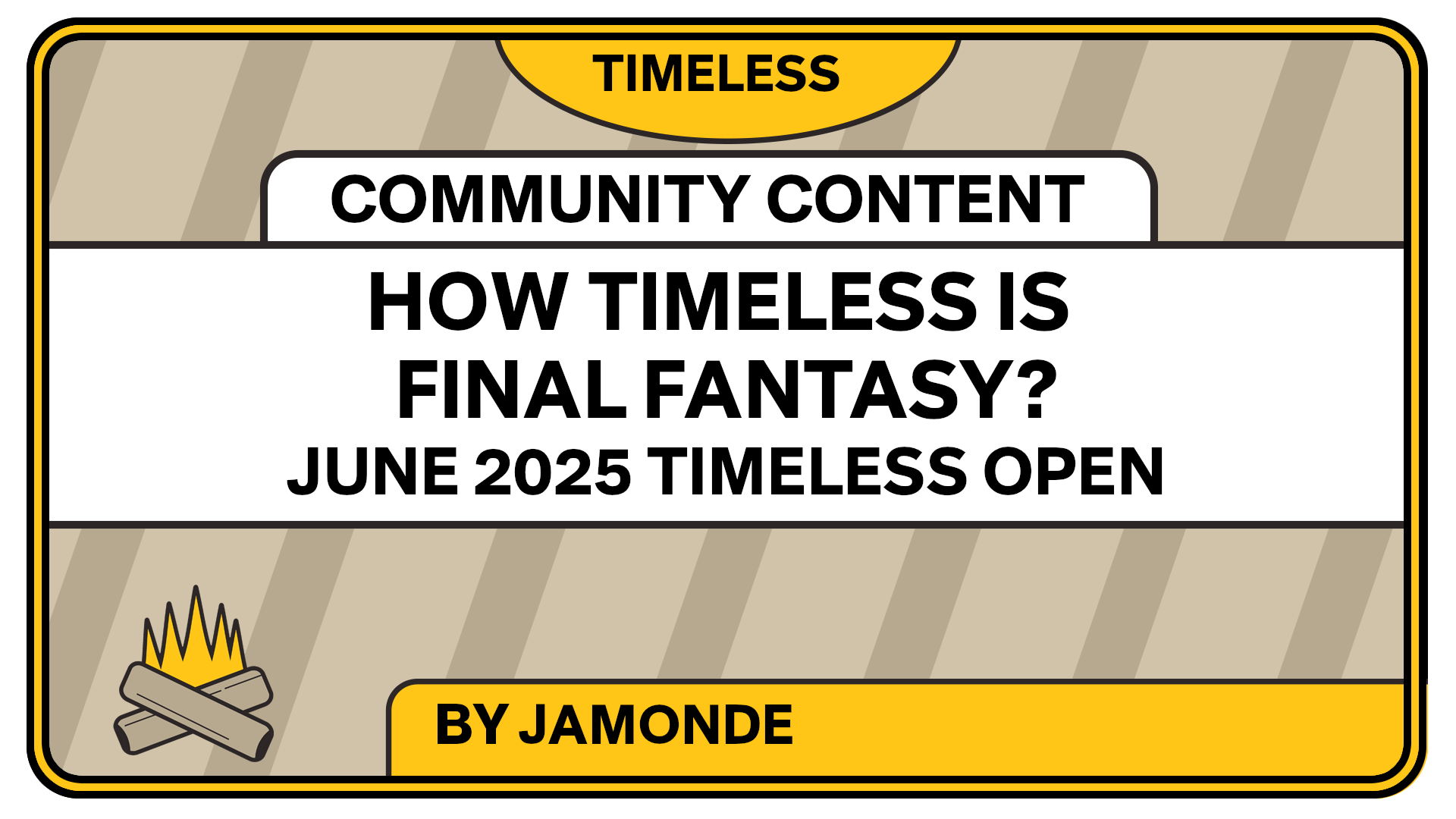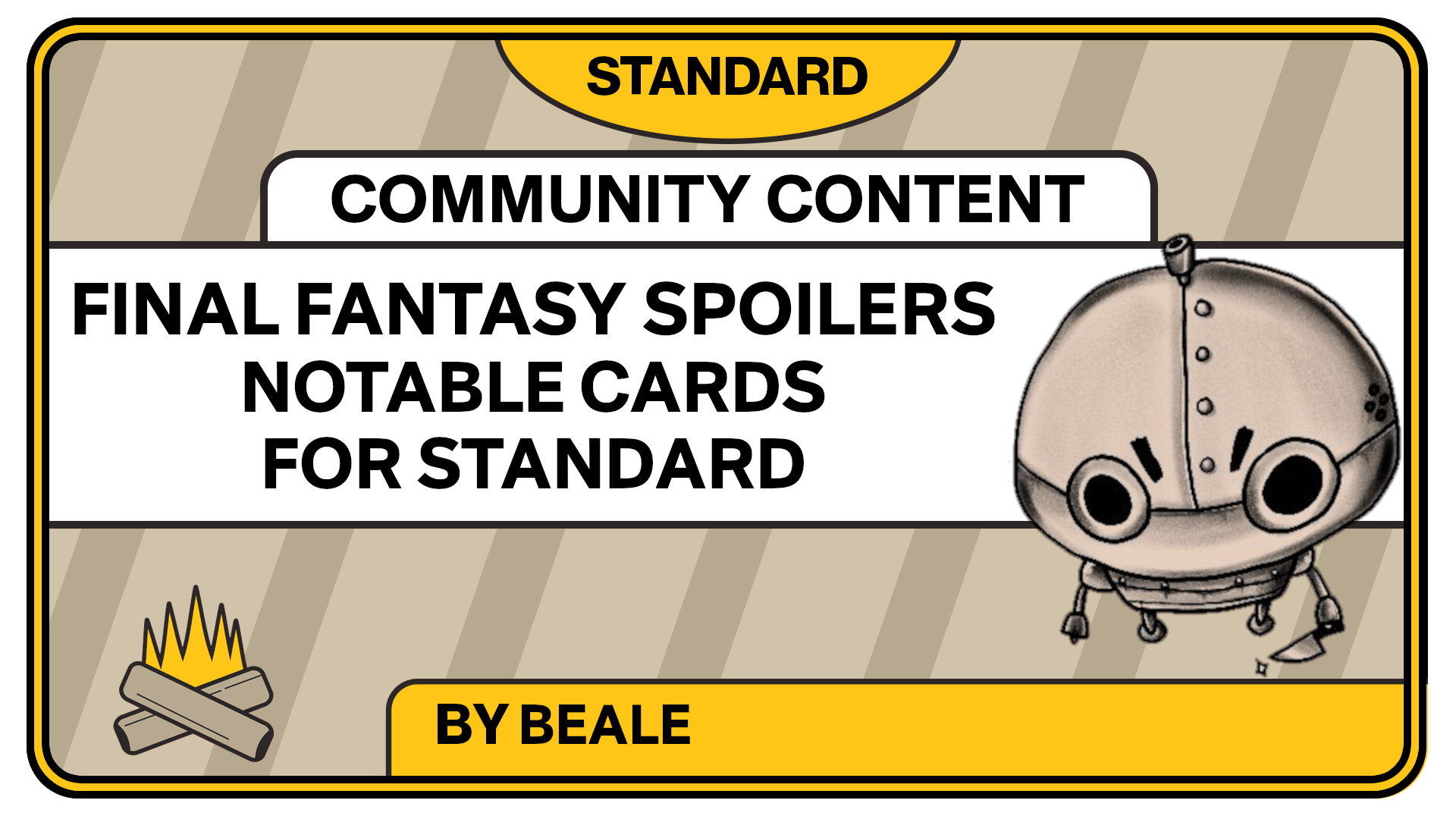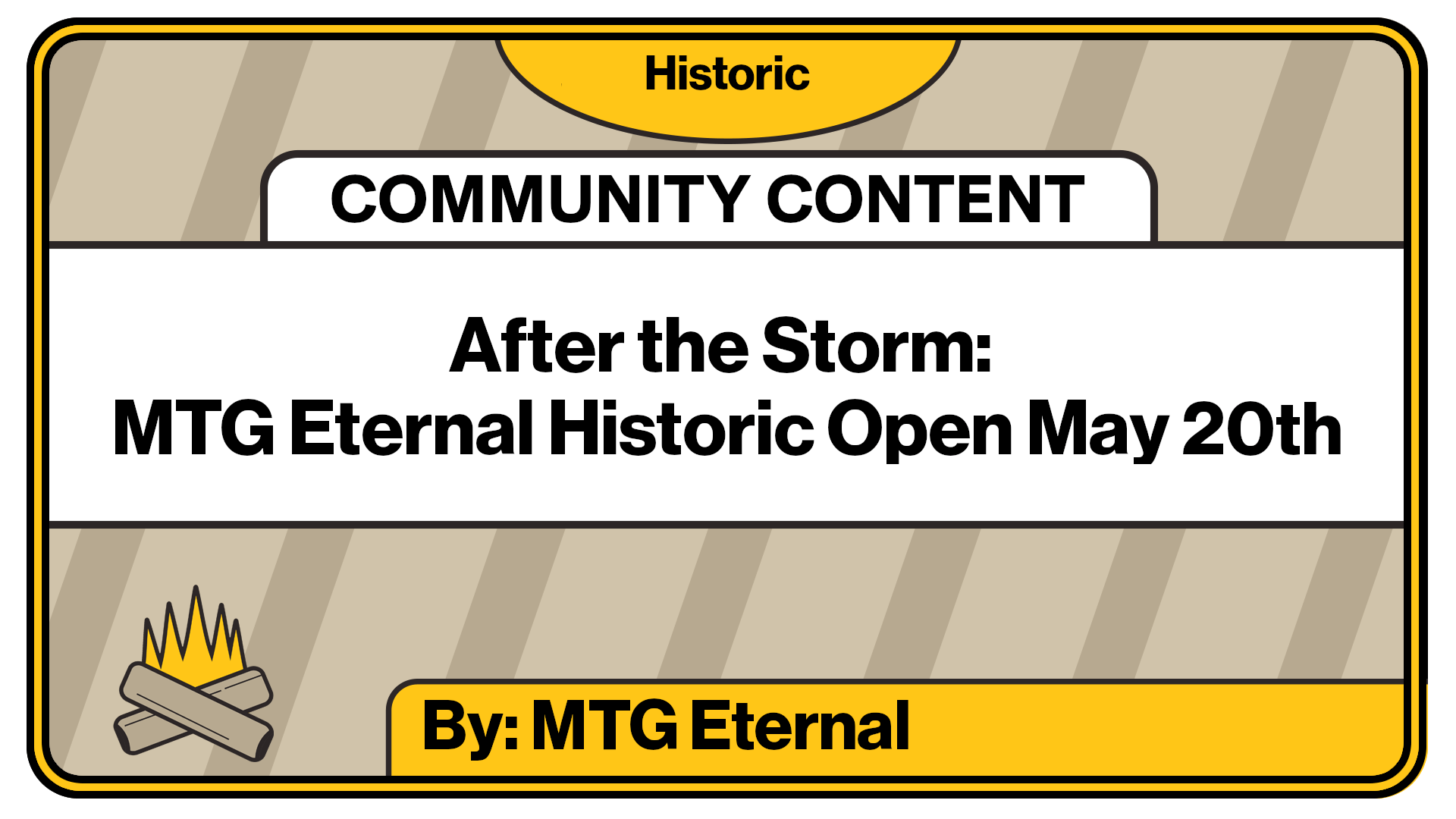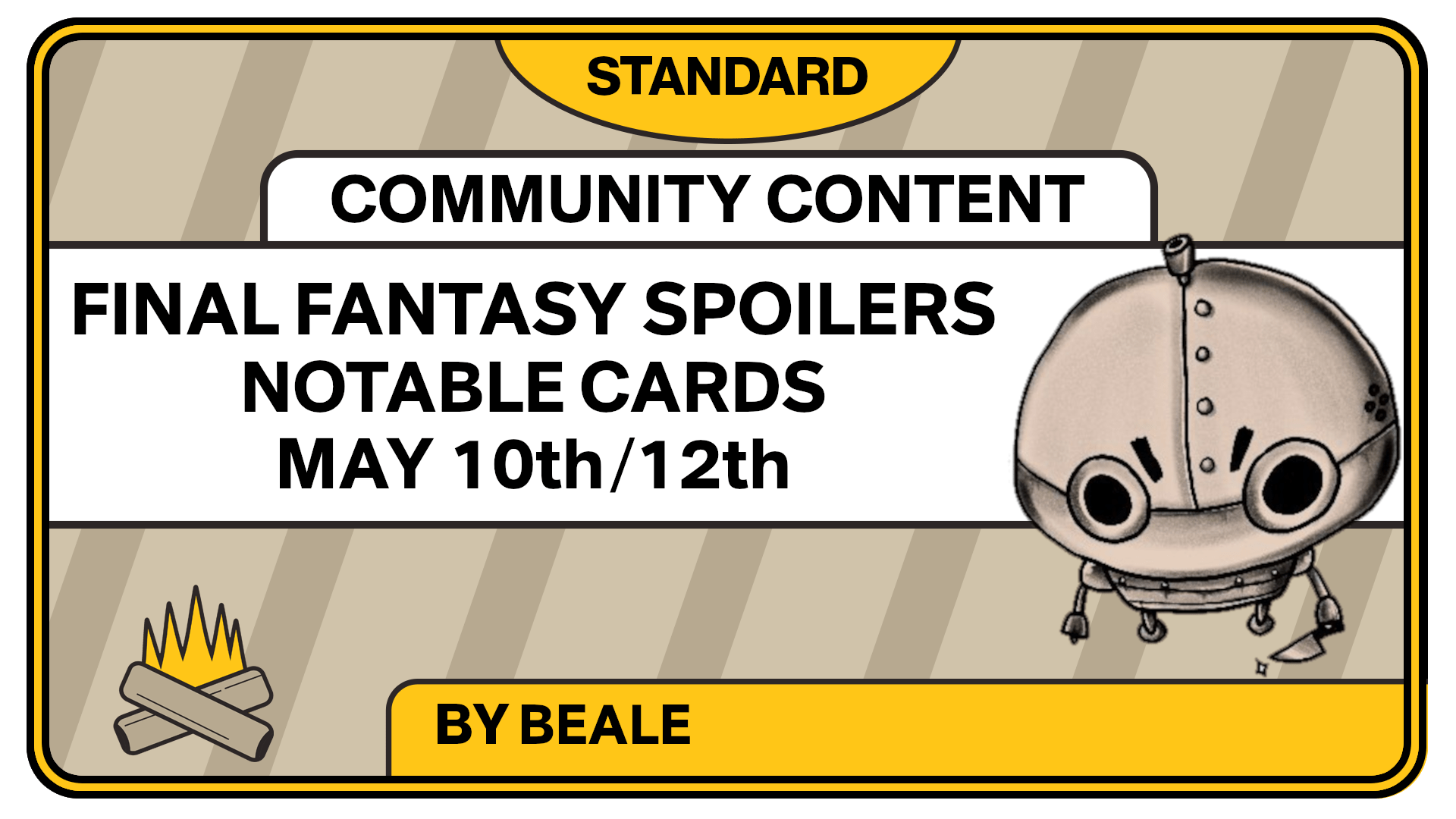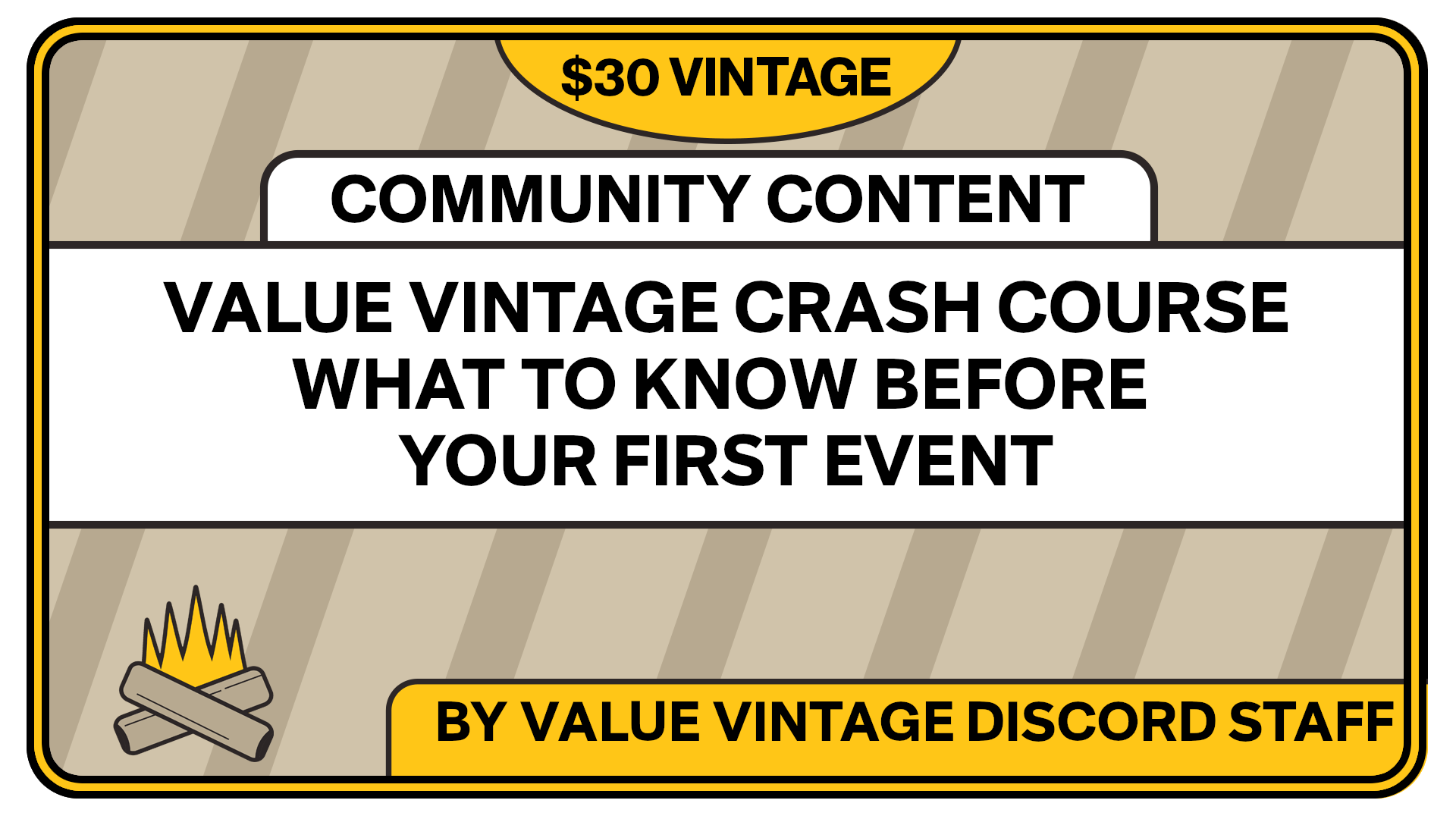The next RCQ Season is fast approaching, with a start date of April 20th, 2024. We’re back to the Pioneer format, and a couple of things have changed since last season – with some notable shakeups and new inclusions. Today, I’ll be offering my recommendations on what to play for this upcoming season. Whether you’re on the fence between two decks, haven’t picked a deck to commit to yet, or just want to see what you might be playing against this season, this will be the one for you. I’ll be covering the likelihood that any particular deck shows up at your average 16 person RCQ, the strengths and weaknesses of these top decks, and whether or not you should pick up each strategy. Let’s get to it.
The Newest pioneer Top Dogs
Anyone who’s been following Pioneer for a while is fully aware of the Rakdos Midrange deck and its chokehold at the top of the format. Those paying attention to the latest Pro Tour Tech though will know that Rakdos has evolved, including now a much more explosive game plan in addition to its grindy attrition style of play.
Rakdos Vampires
Likelihood that it shows up: High. Players have always loved casting Thoughtseize in competitive events, and Rakdos Midrange in general has been at the top of Pioneer as the number one Thoughtseize deck for years now. Vampires is a slightly different take on the time tested strategy, but plays fairly differently from these other iterations, so not every Rakdos Midrange player has made the conversion. Not to mention that it costs about $400 to do so at the time of writing.
Strengths: Sorin putting a Vein Ripper into play on turn three is backbreaking against any deck trying to play fair. In addition to the deck’s natural tendency to grind extremely well over time thanks to Fable of the Mirror-Breaker and the new Preacher of the Schism, Vampires has a great long game combined with a devastating opener.
Weaknesses: Vampires tends to go all-in on whichever plan it’s decided to execute, and will take some time to rebuild its resources if that plan goes answered. It’s two cards in hand to create a Vein Ripper, three to five to properly protect it. If the opponent can manage to answer it, then the deck may have a difficult time recovering in time to also stymie its opponent’s development. It also doesn’t care for go-wide decks like Convoke due to its one-for-one based answer suite.
Should you play it?
Vampires is a great deck for those that can either borrow cards or can straight up afford to play it. After the price explosion of its main pieces, the deck has a much higher barrier to entry. If price is not an issue for you, then I do think that Vampires is an excellent choice going into a new season. You have the potential to catch under-prepared opponents off guard, and the attrition plan is as time tested as they come.
–
There’s another Thoughtseize deck running around right now that’s making waves in Online play, largely off the back of it’s favorable Phoenix matchup. While this one is slightly less conventional, it’s certainly risen through the ranks since last season, where it’s gone from a deck with high meme potential to a serious threat to be aware of.
Waste Not
Likelihood that it shows up: Low to Medium. Waste Not, or Mono Black Control, has a bit of a status as a meme-deck gone rogue, tearing up MTGO Pioneer challenges for the last couple of weeks. The deck has some solid matchups, but doesn’t broadly appeal to most paper grinders. It’s much easier to jump into than Rakdos Vampires though, especially for players who already own Sheoldred.
Strengths: Waste not cannot lose the Phoenix matchup. It’s just not possible (They definitely can, please include this line in the screenshot when you take this out of context). The deck starts to throw its opponent’s game plan off from the first turn, taking nearly every game to top decks where it surges forward thanks to the value-generating Waste Not Enchantment. Its a simple strategy to play and understand, but a difficult one to master, especially against the broader context of the format.
Weaknesses: Fewer specific answers. Waste Not is a deck that has maybe one and a half solutions to all of the format’s problems – Discard it. Discard no work? Kill it. Kill it no work? Out of ideas. The deck can be absolutely devastating against opponents that want to retain cards in hand and leverage card advantage, but anyone who’s willing and able to top deck well is going to be problematic.
Should you play it?
This is a deck for dedicated Black mana enjoyers. It’s a bit more narrow than I prefer my competitive decks to be going into a large tournament, so i’d really only play it if you A) enjoy the strategy or B) know that there will be a room full of Phoenix and Lotus and UW Control ready to succumb to your ire.
The Old pioneer Standbys
The remainder of decks on this list come straight off of our Pioneer Tier List, and have more or less been mainstays in the format for at least one season if not years by now. Some of them have some new tech involved, but for the most part it’s a lot of the same old grind as far as “What people are likely to show up with”.
Phoenix
Likelihood that it shows up: Guaranteed. Phoenix is the most popular Pioneer deck. For whatever reason, the majority of competitive players just love their Blue Red decks that do an explosive thing. Between the challenger deck printing a couple years ago, the huge swath of reprints that the deck has seen, and the density of low rarity cards that make up the core of the deck, it’s also extremely easy to get into as a viable competitive option.
Strengths: Flying creatures, cheap interaction, and infinite card selection. Phoenix is the epitome of “Every choice matters”, which means that strong and experienced players are heavily rewarded for sticking with this deck over the years. Every threat in the deck being a flyer means that it will seldom get stonewalled, and it has the capacity to deal with and dispatch anything.
Weaknesses: Phoenix is a deck that rewards tight play and familiarity with both the deck and the format. This is a two-way street. It’s been around for years so everyone has a plan for it as well, which means that if you aren’t as prepared as you should be you will flop sooner rather than later.
Should you play it?
Phoenix players should play phoenix. I do not recommend this deck to someone who has not played with this type of strategy before, or who has not gotten their reps in with and against the deck. You already know if you’re a phoenix player or not, and if you don’t know, then you probably aren’t. My favorite matchup with any deck is against the inexperienced phoenix player, it doesn’t matter what i’m playing.
Amalia
Likelihood that it shows up: Medium Low. Amalia was the new hotness last season, and players quickly came to sides on whether they loved or hated the deck – with most players choosing the later. While the deck is explosive and intricate, it doesn’t provide the play experience that a lot of players are looking for, and the potential for additional games and going to time is a huge turn off for some.
Strengths: Two-pronged attack viability, and the capacity to go over the top of both aggressive and midrange decks. Amalia can go an entire event without caring what’s on the other side of the table and just doing its combo thing, or it can cool the jets and play a value oriented midrange game of its own depending on what the situation calls for.
Weaknesses: Like Phoenix, a lack of familiarity with the archetype can leave you stranded on a fair number of decisions. The deck also has a particular weakness to specifically Boros Heroic, who can stall the combo out extremely reliably by giving your Wildgrowth Walker indestructible. This results in an unbound loop, which means that the game ends in a draw. This will randomly stretch your tournament out much longer than it needs to go.
Should you play it?
I don’t recommend playing Amalia unless you also play Yawgmoth in Modern or Timeless/Historic and love creature combo. That’s a good number of people, but much less than if I were to suggest the deck to the general populace. It’s not a deck that’s at all intuitive, and you have a lot of non-gameplay things to remember while playing it. There are certain fields where it can dominate, but as more and more players become familiar with the deck it becomes less and less potent. I’d probably only play this deck if I could guarantee I were the only person that would be on it and also there aren’t going to be any Heroic players in a 50 mile radius.
UW Control
Likelihood that it shows up: 50/50. Control in Pioneer (broadly speaking) is less dictated by metagame factors and more dictated on the dedication of its pilots. People will force UW even if it isn’t good and hasn’t been in years, and they will obviously also play it when it’s at its best. Right now, the deck is solidly positioned, but with the new Outlaws of Thunder Junction coming out right as the season starts, it’s not the best time to try and play Control without knowing exactly what you’ll be up against.
Strengths: Versatility. Azorius Control can be built to tackle any meta game, and has all the pieces it needs to succeed in any environment. Strong control pilots with a firm grasp of their scene will easily be able to adjust to the needs of their meta.
Weaknesses: Likewise, Azorius Control cannot be built to tackle every meta game. The tools that the deck has access to aren’t nearly as catch-all as its pilots might want you to think, and the deck really only succeeds when it paves its own path before the tournament even begins.
Should you play it?
This really depends on how you feel about meta gaming as opposed to just walking into a room blind. If you’re the type that loves to prepare for things and do intensive analysis, then control is a great deck for you.
Niv to Light
Likelihood that it shows up: Unlikely. If it does, it will come in force in the hands of a competent pilot though. People tend to not just pick this deck up out of nowhere.
Strengths: The Ultimate slow deck. Midrange and control run in fear, as Niv, the destroyer of the encumbered, wreaks havoc on the lands. This deck is excellent into any deck that wants to take the game late and into a grind-fest.
Weaknesses: Aggression. Niv is a deck that wants the game to go to turn 40, which means that decks that only want to see turn 4 are problematic and can easily get under it.
Should you play it?
Absolutely not, unless you have been already. I firmly believe that Niv players are not forged or created, they simply and miraculously appear on this Earth as an expert in their deck.
Lotus Field
Likelihood that it shows up: Medium High. Lotus is another one of those decks that appeals to one specific subset of players, and most local areas have at least one of those players.
Strengths: Plays on a different axis. Lotus doesn’t attack with creatures, it doesn’t play reactive spells or answer the board. It just does its own thing, and a fair number of decks aren’t ready or able to address that thing. There are also a hundred different builds of the deck, and each of them play differently enough to keep most opponents on their toes
Weaknesses: The deck do be complicated. If you’re anything like me, you’re as dumb as a sack of rocks, which means that playing Lotus to its full potential will be way more than the frictionless surface of your brain can handle.
Should you play it?
Lotus is the deck for players that like to solve puzzles every turn, or those that absolutely refuse to acknowledge that there is a person sitting across from them. Germophobes as well, since you definitely won’t be getting any hand shakes after a match with this deck. It’s a fine deck if you can dedicate the time to learning the lines, but that is a bigger ask here than for most other Pioneer decks.
Boros Heroic
Likelihood that it shows up: Medium Low. While the deck has a myriad of good matchups, it’s also the most prone to losing to variance of anything on this list, which means that a fair number of players who have access to the deck might avoid it. It’s one of the cheapest options though, so that may or may not weigh into calculations depending on your local area.
Strengths: Lightning quick. This is one of the most consistently fast decks in the format, with access to turn three wins without much effort. Aside from Phoenix and Vampires, very few decks are packing the one-mana removal required to keep pace with this deck, and it can just trample over anyone who isn’t ready for it.
Weaknesses: The deck is a removal-check deck, which means that on the first or second turn it’s asking the opponent whether or not they have the removal spell. If they don’t then they likely lose. If they do, there’s a good chance that the game from that point onward is going to be a grueling slog. For as quick out of the gates as the deck can be, it can also get trampled over just as easily if an opponent is ready for it.
Should you play it?
I do recommend decks like Heroic or Convoke – which plays similarly – to anyone looking to jump into Pioneer RCQ season. They’re fast and effective, and you’ll know quickly whether that event was your day or not. They require a bit of planning and forethought, but also let you live in the moment. Their ability to skew the perception of an unassuming meta game and take over an event that wasn’t prepared for them makes them generally appealing, and their play patterns are both fun and exciting.
That’s all for this one. As the Pioneer season rolls forward and Outlaws of Thunder Junction makes its mark on the game, we’ll continue to stand by and keep you up to date on all of the latest that you need to know to get ahead. Remember to keep an eye on our Pioneer Tier List as well to stay on top of this ever-changing metagame!

